How did Bangladesh end up with its deadliest dengue outbreak?
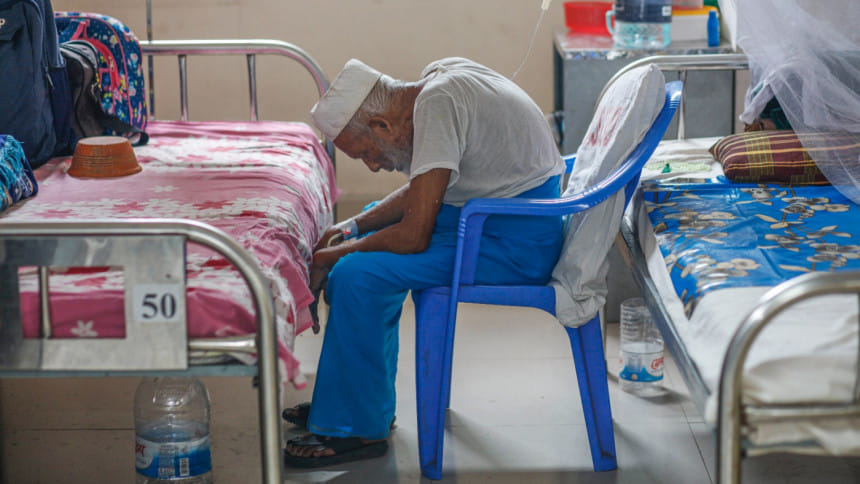
How is it that, in our country, those who are in the seats of power readily boast about their success, but we rarely see them acknowledge their failure, much less take responsibility for it? What we do see are attempts at avoiding accountability for the real-life consequences of their lackadaisical attitude. At best, if the matter is highly publicised, a probe is initiated, but rarely with any conclusive findings. In other times, these authorities may embark on puerile blame games, finding fault in everyone but themselves.
This pattern of behaviour – shirking responsibilities, being oblivious to the telltale signs of a crisis, failing to take prompt actions, and then blaming someone else when a crisis occurs – is driven by a confidence (or rather, an arrogance) that is mightier than all our civil rights combined. A confidence that stems from a long-persisting culture of impunity and complete disregard for accountability to the people, whom the authorities are mandated to serve and protect.
Which is why I am not surprised by the rather apathetic approach of our government towards the ongoing dengue outbreak. In fact, there has been no visible urgency among those who are tasked to deal with public health crises. Seeing their blase attitude, you'd think perhaps there really is nothing to worry about.
But then you see the numbers. The year 2023 has been a year of records when it comes to dengue. With 37 percent of global deaths occurring here, Bangladesh tops the list of most affected countries in the world. We are seeing the highest number of deaths and the highest caseload in the country's history – 1,284 and 258,912, respectively, between January 1 and October 24 – according to the Directorate General of Health Services (DGHS). For context, the previous worst dengue year, 2019, saw 164 deaths and 101,354 cases reported. Last year, during a short but intense spell, 281 deaths and 62,382 cases were recorded. In fact, this year's death toll and caseload has far surpassed the numbers of all the previous outbreaks combined (dengue was first detected in Bangladesh in 2000). These are only the cases that have been reported to the health directorate – some experts believe the real numbers could be much higher. And there is no sign of the infections letting up yet.
How did we get to this situation? Did no one see it coming?
The experts did, of course, and they warned us well before the crisis unfolded. When dengue infections started to spike earlier this year, health experts expressly warned in May that we were on the verge of an outbreak that could be much worse than anticipated. They also said adequate planning and its timely execution considering all factors – including warmer and wetter summer – was necessary to contain the dengue spread. In July, when dengue deaths and infections spiked alarmingly, there were again warnings that it might be time to prepare for a public health emergency.
Did those warnings make any difference to our government bodies? In July, our health minister said there was no reason yet to declare a public health emergency. The situation in August – which saw higher deaths and caseloads than all of 2022 – and in September – which surpassed the August numbers – apparently weren't severe enough to garner that acknowledgement either. Meanwhile, dengue continues to rage on in the country, now spreading beyond urban areas, which have typically borne the brunt of outbreaks over the years. Our already fragile healthcare system, especially the facilities in rural areas, are crumbling under the pressure of dengue hospitalisation.
Bangladesh is seeing not just its own worst dengue spell but the worst outbreak globally, simply because our authorities lacked the foresight to read the signs. If only those in charge of looking after us were proactive – not reactive.
Our government's refusal to announce this year's outbreak as a public health emergency – because they refuse to accept that they failed to contain the viral disease with timely and effective measures, despite several warnings – means that no specialised plan or task force has been put together to handle the crisis. It seems there is no general plan of action either; there are no concerted efforts from the relevant government agencies regarding dengue management. Instead, they keep pointing fingers at each other. The vector management policy, which is supposed to serve as a definite guideline to control the population of Aedes mosquitoes – the carrier of dengue – has yet to be finalised.
It is clear by now that they have learnt nothing from the past few years' experience. And I can't help but ask: why? With all the data, tools, help from experts both local and foreign at their disposal, why has the government still not come up with a dengue management plan that works? Other countries seem to have cracked the code. Take Kolkata, for example, where the city authorities devised a definitive vector management plan to control dengue (following the 2010 outbreak), which has been successful in containing the viral disease in the West Bengal city till date. Surely, we can take a leaf out of their policy book? Is it apathy towards citizens that makes our policymakers indifferent to our well-being, or are they simply not competent enough to do the job?
Bangladesh is seeing not just its own worst dengue spell but the worst outbreak globally, simply because our authorities lacked the foresight to read the signs. If only those in charge of looking after us were proactive – not reactive.
If we were in a country where public officials were accountable to the people, we would be able to sue them for failing to save us from a public health crisis. In such a country, the loss of nearly 1,300 lives – including more than 130 children – to a preventable disease would cause an uproar, and those who failed to do their job with due diligence would apologise and hand in their resignations. Unfortunately, we don't live in a country where people's health is prioritised.
Sumaiya Binte Shams is a member of the editorial team at The Daily Star.
Follow The Daily Star Opinion on Facebook for the latest opinions, commentaries and analyses by experts and professionals. To contribute your article or letter to The Daily Star Opinion, see our guidelines for submission.

 For all latest news, follow The Daily Star's Google News channel.
For all latest news, follow The Daily Star's Google News channel. 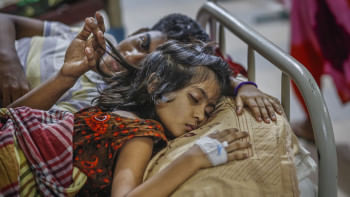
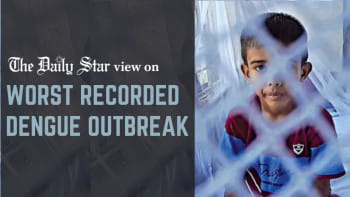
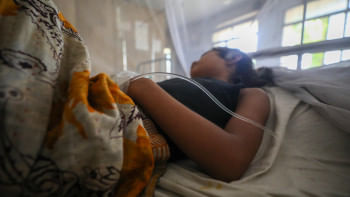





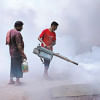
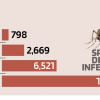


Comments